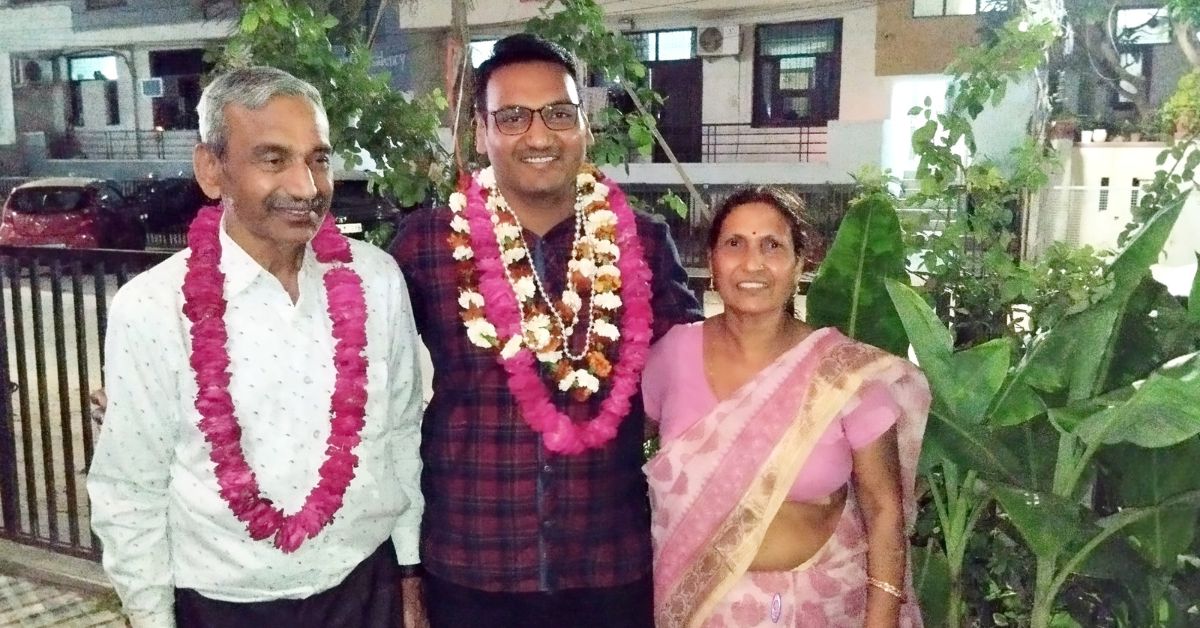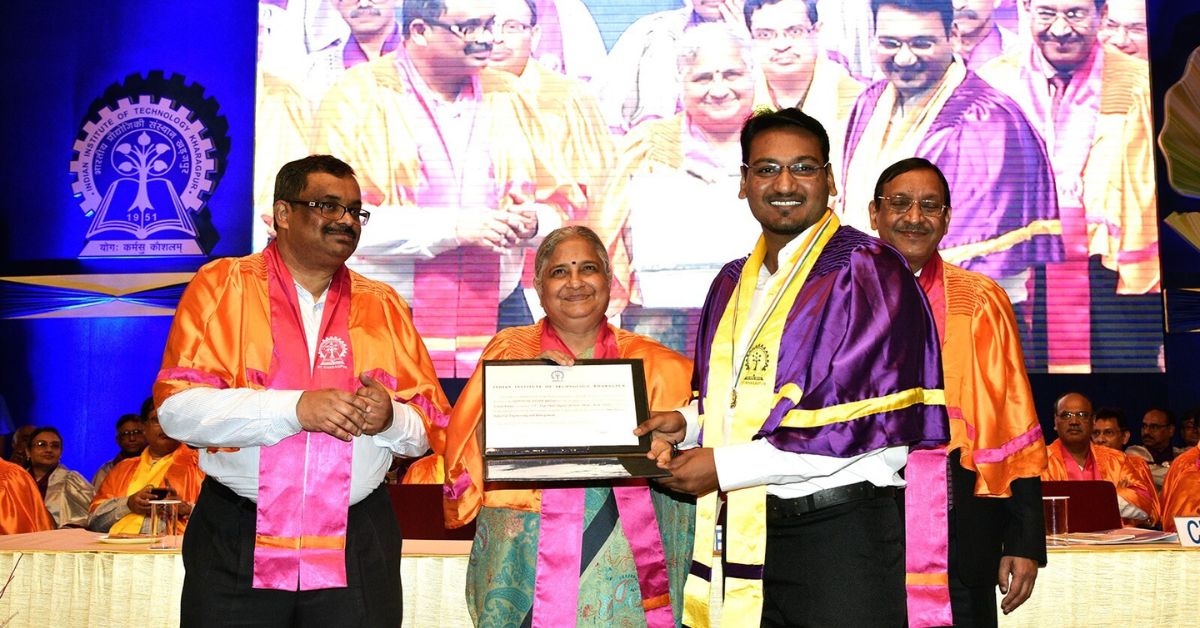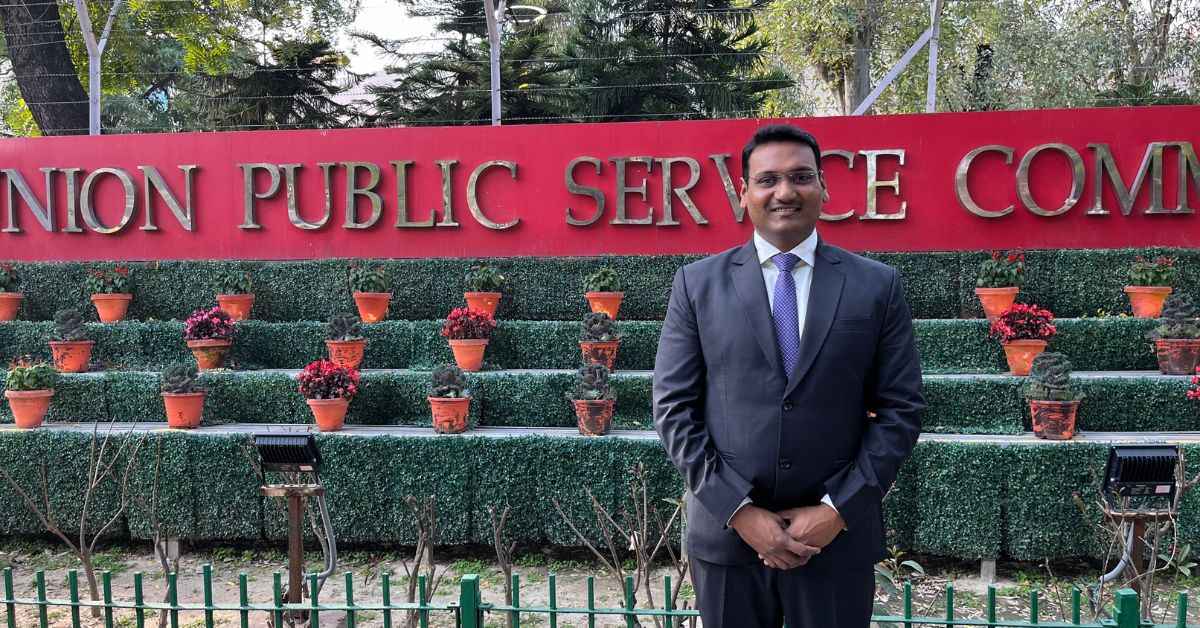“Why is it taking so long for you to clear the exam?”
“This exam isn’t for you.”
Jaipur-resident Ashish Kumar Singhal was often questioned about his decision to appear for one of the most challenging exams in India — the Union Public Service Commission (UPSC) Civil Services Examination (CSE).
“Whenever I stepped out, people would question what was going on in my life and say that I was stuck. People said clearing UPSC was not my cup of tea and I should prepare for other exams like SSC [Staff Selection Commission], RAS [Rajasthan Administrative Services], or SBI [State Bank of India] clerk,” he recalls in a conversation with The Better India.
In 2018, Ashish — a graduate from IIT Kharagpur — quit a well-paying job to pursue a career in civil service. “People said that I ruined my life by setting out on a difficult path when I could have established a good career in the corporate world and settled abroad,” he adds.
Instead of getting affected by the taunts, the 29-year-old remained determined and today has fulfilled his dream. After four failed attempts, he cleared the examination and secured an impressive All India Rank of 8 in 2023.
“Any student can clear this exam irrespective of their academic background. You do not need to be extraordinary. The only key to ace this exam is to be dedicated and consistent in efforts. If you have perseverance, no one can stop you from achieving success,” he opines.

We sat down with the IAS officer to trace his triumphant UPSC journey and share the mistakes and learnings that led to success after four failed attempts.
Try, try, until you succeed
After his graduation, Ashish worked for a year in Gurugram. It was during the job that he understood his true calling. “I realised I did not belong in the corporate world and I needed to be somewhere else. Civil services provide social connect, diversity in work, and power to make a change. People-centricity was a major driving force. I felt administration was a way to lead a purpose-driven life,” he says.
In 2018, he quit the job and started preparing for UPSC. With 10 months of preparation, Ashish managed to clear prelims in his very first attempt. “I was focussed on prelims but I did not prepare for Mains at all. I was in a celebratory mood. By the time I realised I needed to prepare for Mains, I’d wasted a month and had just two months left for preparation,” he says.
As expected, Ashish failed the Mains in 2018. “I knew that my preparation was not sufficient,” he adds.
He was motivated to attempt again but sadly, he failed the prelims in the second attempt in 2020. In his third attempt in 2021, he managed to clear the prelims but missed the Mains cut off by 20 marks.

“I could not concentrate better as my sister’s marriage was just 15 days before the exam. Being a brother, I had a lot of responsibilities to cater to. I considered this failure as part of the journey and did not feel discouraged. Also, there was only a marginal gap in marks, so I could try one more time,” he adds.
Sadly, he failed in prelims in the fourth attempt. “This was a major setback for me. I was disheartened. But I understood that something was lacking in my strategy because of which I was either failing prelims or Mains,” he says, adding that he did wonder if he should quit preparation and go back to corporate.
Nevertheless, Ashish was motivated to give one last try. He appeared for his fifth attempt and finally achieved success — securing an impressive AIR 8!
Five ultimate tips to guarantee success in UPSC
Ashish shares how he changed his strategy in the fifth attempt to clear UPSC CSE:
1. Be Consistent
“By the fifth attempt, I knew what I needed to study, but I lacked consistency. If you have decided to become a civil servant, you must work hard consistently. So, if you study for four days and then rest for the next four days, then you may not be able to achieve success. It’s better to study all eight days even though for fewer hours,” he says.
2. How to read the newspaper
Ashish says his day started by reading the newspaper — either The Hindu or The Indian Express. “I would read the newspaper for about an hour. The strategy to read the newspaper should be different for aspirants. Usually, people look for masala news but as an aspirant, I looked for topics related to constitution, environment, or economy. A few coaching centres like Vajiram also publish important news items on their social media pages, mark those in the newspaper and read about them in detail,” he says.
Reading the newspaper daily widens your thought process. “Suppose there is an editorial on international relations between India and China, journalists take information from history and other sources to compile a detailed piece. This gives you an idea on how to broaden your thinking,” he adds.

3. Set a timer
“In place of studying for 12 or 14 hours, I focussed on studying dedicatedly for seven hours daily. I started using a stopwatch for focused studies. I would spend the rest of the time gossiping with my parents, walking in the park, and listening to music,” says Ashish.
4. Source optimisation
The IAS officer advises aspirants to minimise source material. “Rely on one or two sources that help you complete the syllabus for a subject. Do not get distracted by multiple sources. Initially, I was also in the trap of purchasing multiple books, but it’s better to fix your sources and study from the same source again and again,” he advises.
Sharing his source material, Ashish informs, “I studied NCERTs from Standard 6 to 12 for almost all subjects to develop foundational knowledge. I referred to standard books like Laxmikant for Polity and Vipin Chandra for Modern India.”
5. Use colourful highlighters
Given the vast syllabus, Ashish says, there’s a tendency to forget topics. “It is very important to revise. I used to underline or make circles on important points. I would also use different colours of highlighters or pens to mark the important topics. Make short notes for points that you keep forgetting even after multiple revisions,” he suggests.
Edited by Pranita Bhat. All photos: IAS Ashish Kumar Singhal.
No comments:
Post a Comment